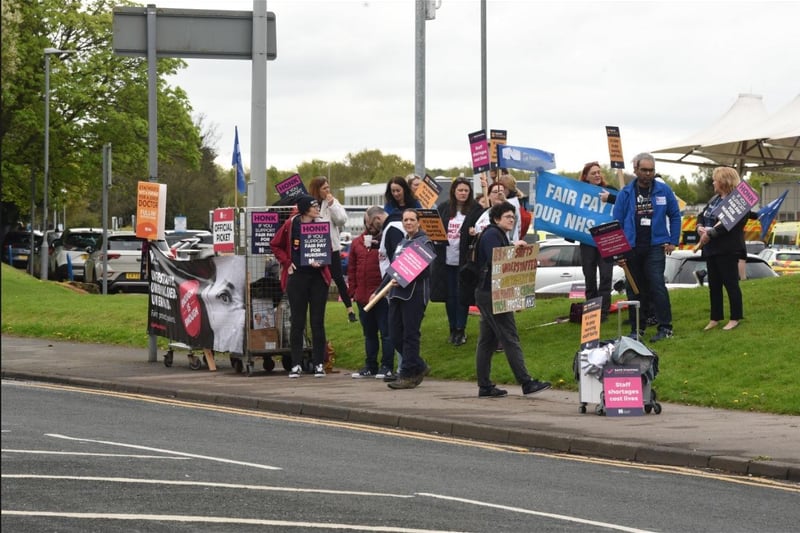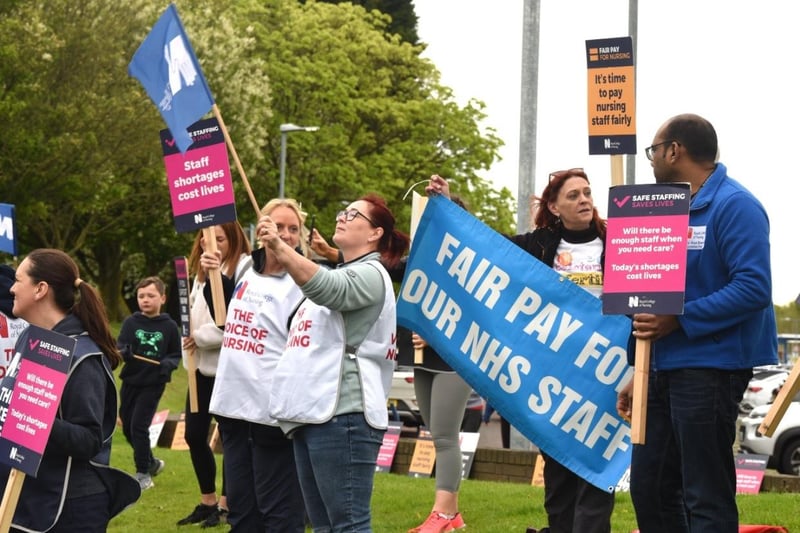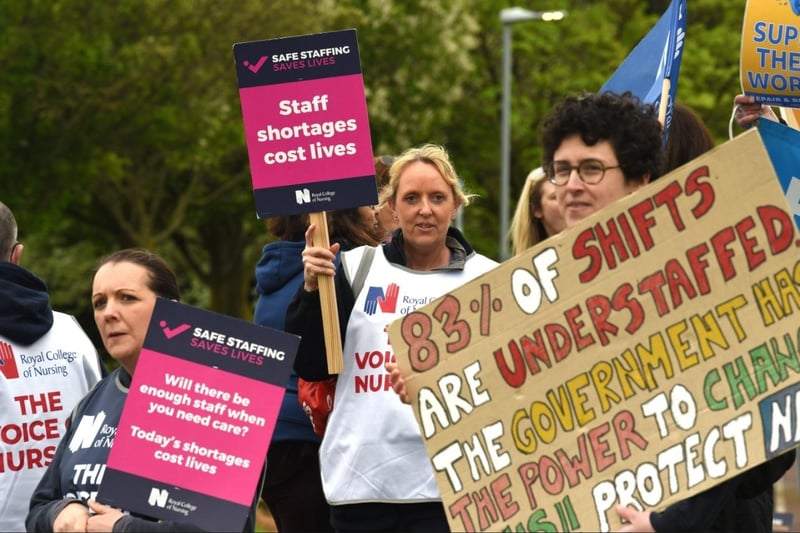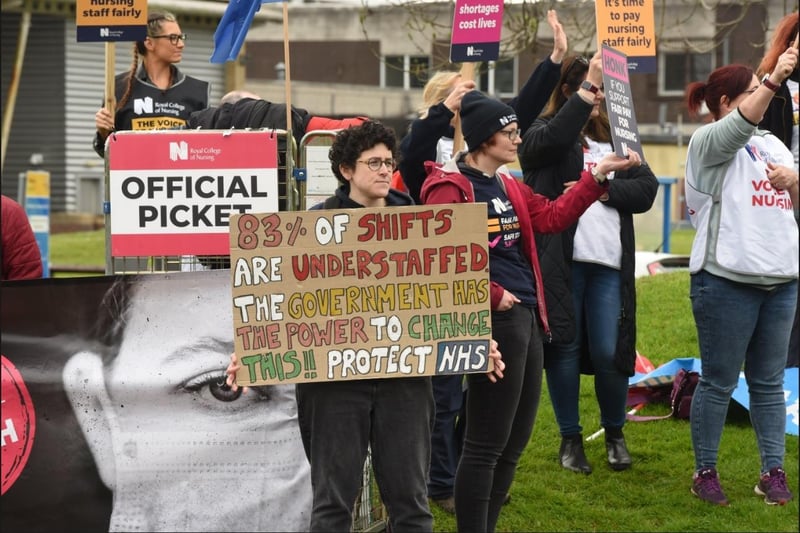But unlike previous days of industrial action, the walk-out which began at 8pm on Sunday night also involved nursing staff from emergency departments, intensive care units and cancer services.
Members of the Royal College of Nursing decided to withdraw their labour after rejecting the Government’s latest pay offer, despite union leaders recommending they should accept it. The 28-hour strike was due to finish at 11:59pm on Monday.
It affected hospitals in the Lancashire Teaching Hospitals NHS Foundation Trust – the Royal Preston and Chorley and South Ribble – and also the University Hospitals of Morecambe Bay NHS Foundation Trust.
Patients were asked to be mindful of the strikes when considering which health services they need to use during the strike period.
Sarah O’Brien, chief nursing officer for Lancashire and South Cumbria Integrated Care Board, which organises healthcare services in the region, said: “There is likely to be significant impact upon local services. This will mean services will feel different for patients. This could include longer waits or deferred treatment.
“The NHS is working hard to prioritise resources to protect emergency treatment, critical care, neonatal care, maternity, and trauma, and ensure we prioritise patients who have waited the longest for elective care and cancer surgery. We will only reschedule appointments and procedures where necessary and will rebook immediately, where possible. Unfortunately these strikes will have a significant impact upon planned and routine care.
“Regardless of any strike action taking place, it is really important that patients who need urgent medical care continue to come forward as normal, especially in emergency and life-threatening cases - when someone is seriously ill or injured, or their life is at risk.
“If you need medical help or advice, or you are unsure about whether you should go to hospital, go to NHS 111 online unless it is a life-threatening emergency when you should still call 999.”

1. Nurses take to the picket lines outside the Royal Preston Hospital
Members of the Royal College of Nursing rejected the latest Government pay offer. Photo: Neil Cross

2. Nurses take to the picket lines outside the Royal Preston Hospital
'Fair Pay For Nurses was the call from pickets. Photo: Neil Cross

3. Nurses take to the picket lines outside the Royal Preston Hospital
The striking nurses were due to end their walkout at just before midnight on Monday. Photo: Neil Cross

4. WLEPnews-01-05-23-Nurses 4-NWupload
Staffing is as much an issue say the nurses as pay. Photo: Neil Cross